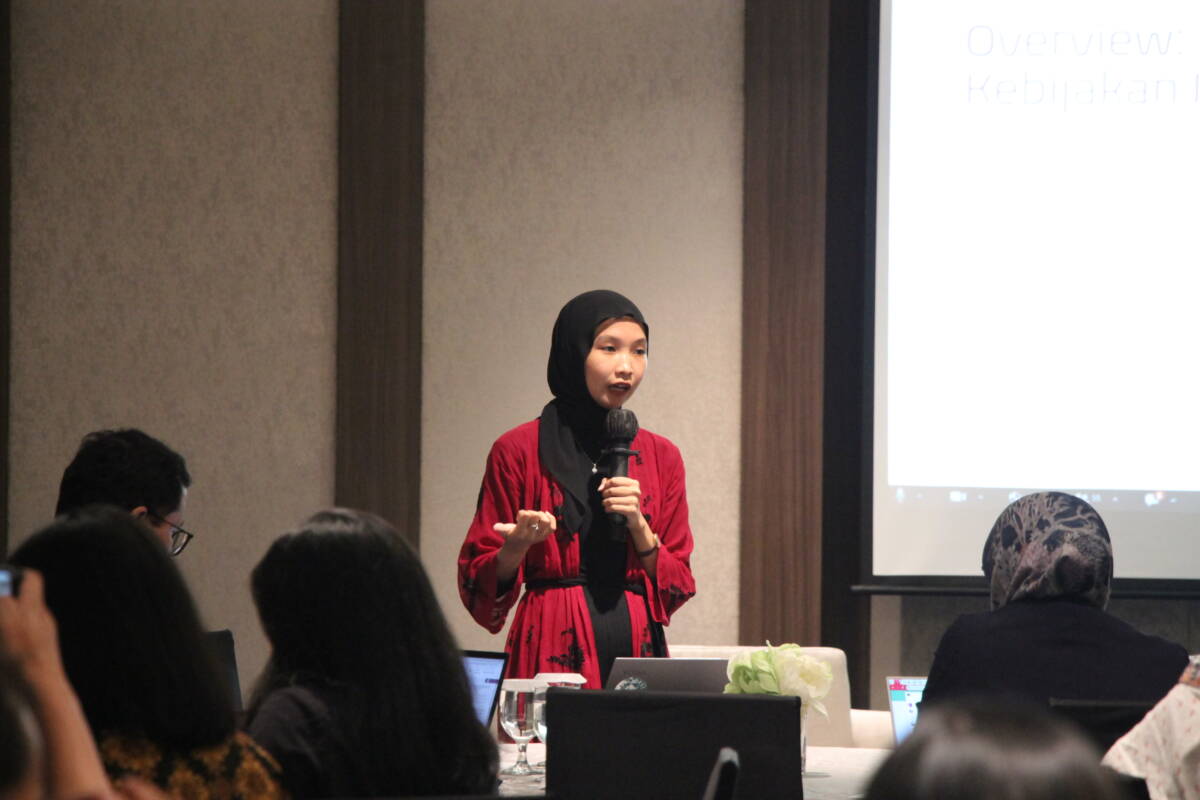Jakarta, 30 January 2024 – The World Meteorological Organization (WMO) has declared 2023 as the hottest year. Historical records show that the earth’s temperature continues to increase from year to year. To keep the earth’s temperature rise to no more than 1.5 degrees, experts have recommended ensuring the world reaches peak global emissions in 2030 and must fall in the following years.
The use of fossil energy is one of the largest contributors to emissions in the world. Executive Director of the Institute for Essential Services Reform (IESR), Fabby Tumiwa, said that Indonesia needs measurable and real action for transitioning away from fossil energy.
“Based on the Climate Action Tracker (CAT) assessment, Indonesia has not shown a reduction in emissions, in fact it will experience an increase in emissions in 2022 and one of the causes is an increase in coal consumption used for down streaming. Indonesia’s rating even dropped from ‘highly insufficient’ to ‘critically insufficient’. The most important thing is real steps to accelerate the transition in this decade,” emphasized Fabby.
Indonesia, as one of the top 10 emitting countries in the world, actually received a bad record with Indonesia’s climate ranking dropping to the lowest level according to the Climate Action Tracker (CAT) assessment framework.
Delima Ramadhani, IESR Climate Policy Project Coordinator, said at the launch of the Climate Action Tracker report that throughout 2023, Indonesia has delivered a number of initiatives and policies that normatively support the acceleration of the energy transition, but this does not have implications for efforts to reduce emissions.
“Indonesia’s rating dropped from ‘highly insufficient’ to ‘critically insufficient’. ‘Critically insufficient’ means that if countries have climate commitments like Indonesia, the rate of global warming will be at the level of 4 degrees,” said Delima.
Mustaba Ari Suryoko, Intermediate Policy Analyst, Coordinator of the Aneka EBT Program Preparation Working Group, responded that the assessment of emissions reduction efforts is a reminder for all parties to continue working to achieve emissions reduction targets.
“Achievement number figures are an accumulation of various variables, so we hope that in planning we will not only determine ambitious targets but also make efforts to achieve them,” he said.
Anna Amalia, Functional Intermediate Planner at the Ministry of National Development Planning (Bappenas), said that to pursue Indonesia’s more ambitious climate targets there are several opportunities.
“The government is starting to move progressively, in the next 20 years we will have a RPJP (National Long Term Development Plan-ed) which focuses on reducing GHG emissions, how we encourage economic growth through low emission corridors and of course other policies will follow,” Anna said.
The annual Climate Transparency report also includes an Implementation Check Report to see the effectiveness of climate policy implementation.
Akbar Bagaskara, IESR’s Power Sector Analyst, explained that Indonesia’s electricity sector is in the medium category because the implementation of policies that support the transition in the electricity sector has not been effective.
“Historically, in the last five years we never achieved our annual renewable energy target. We need to strengthen policies to strengthen Indonesia’s renewable energy enabling environment, as well as involving various groups in the planning, procurement and evaluation processes,” explained Akbar.
Yosi Amelia, Forest & Climate Program Officer, Yayasan Madani Berkelanjutan, highlighted the lack of synchronization of strategies across ministries and government agencies which created unclear documents that should be treated as guidelines.
“There are inconsistencies between documents, for example regarding Indonesia’s deforestation quota. In the FOLU Net Sink 2030 strategy, there are no longer deforestation quotas, while the E-NDC still provides deforestation quotas,” said Yosi.

